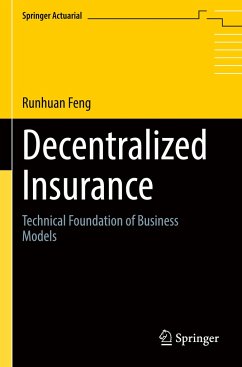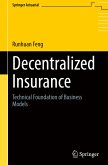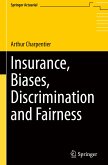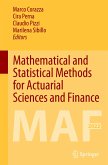The book offers an introduction to the technical foundation of decentralized insurance models, for advanced undergraduate students, graduate students and practitioners. The book is self-contained and anyone with a basic knowledge of probability and statistics should be able to follow through the entire book. It adopts a minimalist approach to describe the essential elements and first principles so that readers can get a gist of these models without being overwhelmed with too much technicality. It can be used as a reference for business model designs. The inclusion of exercises and practical examples makes the book suitable for advanced courses on decentralized insurance and risk sharing.
There is a mix of industry practices and academic models presented in this book. The exposition starts with an overview of historic and current business practices and preliminaries on the mathematics and economics of risk and insurance. A bird's-eye view of traditional insurance isprovided as a benchmark for various topics to be used in contrast with decentralized insurance. The book then continues with decentralized insurance practices around the world, including online mutual aid originated in China, takaful from the Islamic world, peer-to-peer insurance in the West, catastrophe risk pooling for Carribean countries, etc. Theories of aggregate risk pooling and peer-to-peer risk exchanges are provided for readers to appreciate the mathematical foundation of risk sharing. A unified framework of decentralized insurance is presented to show a structured approach to the economic design of decentralized business models. The book ends with a technical review of blockchain and decentralized finance (DeFi) insurance applications.
There is a mix of industry practices and academic models presented in this book. The exposition starts with an overview of historic and current business practices and preliminaries on the mathematics and economics of risk and insurance. A bird's-eye view of traditional insurance isprovided as a benchmark for various topics to be used in contrast with decentralized insurance. The book then continues with decentralized insurance practices around the world, including online mutual aid originated in China, takaful from the Islamic world, peer-to-peer insurance in the West, catastrophe risk pooling for Carribean countries, etc. Theories of aggregate risk pooling and peer-to-peer risk exchanges are provided for readers to appreciate the mathematical foundation of risk sharing. A unified framework of decentralized insurance is presented to show a structured approach to the economic design of decentralized business models. The book ends with a technical review of blockchain and decentralized finance (DeFi) insurance applications.








